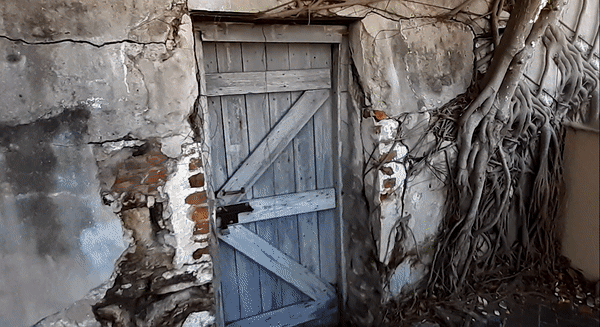I have written many times on the parallel of Israel’s republic (detailed in Joshua and Judges) with the American republic. Most tellingly, the political logjam preventing ratification of our U.S. Constitution was only broken when holdouts in New Hampshire were persuaded by Pastor Samuel Langdon’s 1788 sermon “The Republic of the Israelites an Example to the American States.” And if that Scripture-based history explains how we became a republic, it can also explain why ours has survived no better than that of the Israelites.
We have just celebrated Easter, the Christian version of the biblical Feast of First Fruits (Leviticus 23:4-14), in which Jesus “has been raised from the dead, the firstfruits of those who have fallen asleep” (1 Corinthians 15:20). On Easter morning I was blessed to receive what seems to be a gift of insight from the Holy Spirit on one of the great mysteries of the Bible: the rationale behind the sacrifice of Jephthah’s daughter in Judges 11.
A few weeks previously, our weekly livestreamed chapter-by-chapter Freestyle Bible Study addressed the story of Jephthah. Like most Christians, I had always been mystified by Jephthah’s strange vow that forced him to (later) sacrifice his own daughter as the price of military victory over the Ammonites. On that day I had prayed for insight on that strange passage but did not receive it.
However, on Easter morning as I was preparing for that day’s Bible Study on Judges 19, I began looking for evidence in the book of Judges of the keeping of the biblical feasts during that era. Such evidence is very sparse and mostly just implied, such as the references to Levites who travel the land, for example in the story of Micah and the Danites in Judges 17-18. Repentant sinner Micah recruits a wandering Levite, Jonathan, grandson of Moses, to be the personal priest of his household.
When a band of Danite warring adventurers later visits Micah and hears the voice of the young Levite (who was already familiar to them) they essentially poach him for themselves, and continue on their way to Laish, inhabited by Sidonians, which they conquered and renamed Dan. “The Danites set up idols for themselves, and Jonathan son of Gershom, the son of Moses, and his sons were priests for the tribe of Dan until the day of the captivity of the land [when the Ark of the Covenant was stolen from Shiloh by the Philistines]. So they set up for themselves Micah’s graven image, and it was there the whole time the house of God was in Shiloh” (Judges 18:30-31).
So what we see is a continuation of Mosiac religious ritual through the book of Judges but in a corrupted form, despite the deliverers whom God raises up to reconnect the people to Himself whenever Hebrew national existence and independence was threatened. The continuously repeated message of Judges is that no matter how many chances God gives His people, they are never truly able to govern themselves under the rule of (Mosaic) law for very long but always fall back into idolatry. And, most importantly to my thesis today is that at least several of the Judges themselves each seem to exemplify the sin/habit/practice that must be purged from the land for it to be restored to God.
I first noticed and began pondering this hypothesis when we read and discussed the story of (Trump-like) Samson, who, despite being set apart even from before birth under the Nazirite vow, lived in many ways a life that mirrored the sins of the Philistines. And Samson ultimately only prevailed over their leadership by pulling down their temple onto himself, killing them – and himself – in the process.
Suddenly, I understood the story of Jephthah and his virgin daughter – his only child. Jephthah was chosen by God to overthrow the Ammonites, a nation born from Lot’s incestuous sin with his own daughter. That sin made Ammon and all his descendants “Mamzers” – which is why they could not intermarry with the Hebrews. “No one of illegitimate birth may enter the assembly of the LORD [the gene pool of marriageable partners], nor may any of his descendants, even to the tenth generation. No Ammonite or Moabite or any of their descendants.” (Deuteronomy 23:2-30)
Jephthah was himself a Mamzer, born to a prostitute whom his father had slept with. His victory over the Mamzer Ammonite nation ultimately depended on the sacrifice (literally or symbolically) of his own genetic line – which ended with his virgin daughter. Like Samson (with Delilah “Stormy” Daniels), Gideon (with the Midianite family altar to Baal) and others, Jephthah’s life was intimately entangled with the sins of the enemy he was raised up to bring down.
In parallel/contrast with Jephthah’s story is that of the Judge Ibzan, whom Jewish tradition asserts is Boaz from the book of Ruth. Ruth, is, of course, a Moabitess under the same Mamzer curse as Jephthah’s daughter because Moab was Lot’s other son by father-daughter incest. Except in this case, which follows immediately after Jephthah’s story in the book of Judges chronologically (but is not explained until the book of Ruth), Ruth is justified and sanctified by the Kinsman Redeemer, Boaz, a type of Christ. And indeed because of this she becomes a part of His genetic line. The curse is broken.
The lesson of the book of Judges is that only Christ can save His people, and so the Israelite republic and its experiment of self-governance under the laissez faire rule of the House of Israel (led by the Tribe of Ephraim) finally ends with the humiliating conquest of the Israelites by the (post-Samson) revived Philistines who destroy the Ephraimite capital of Shiloh and carry off the Ark.
When the Israelites finally get the Ark back they send it to the fortified Judean city of Kirjath Jearim pending the formal transfer of authority over the 12 tribes to the Tribe and House of Judah under the monarchy of King David – the most important Christ figure of the Bible except for Jesus Himself.
America’s “Ark” is our Bible-based constitution, which was stolen by our own home-grown Philistines who also destroyed our “Shiloh” in the election coup of 2020/21. If the pattern holds, we will never again return to self-rule under law, but suffer first a wicked King Saul (an Antichrist) then be delivered by the (Davidic) King of Kings (Revelation 19:11-21).
Throughout Judges there is one repeating statement that explains why the Israelite republic ultimately failed and why America is failing now: “In those days there was no king in Israel; everyone did what was right in his own eyes.” No matter how many Eisenhowers, Reagans and Trumps God raises up in times of greatest need, our (always partial) repentance and restoration only lasts a short while before our collective sin overtakes us again (even more powerfully) and the most wicked among us (like Abimelech in Judges 9 and OBiden today) seize the seats of power. Thus, next comes hell on earth.
Without the one true Shepherd, we are incapable of righteous civilization – which is the entire point and purpose of the grand finale of His-story, His Millennial Kingdom – when He will sit on “the throne of David,” which the Christian world now awaits like a woman enduring the pains of labor (Matthew 24:6-8).



